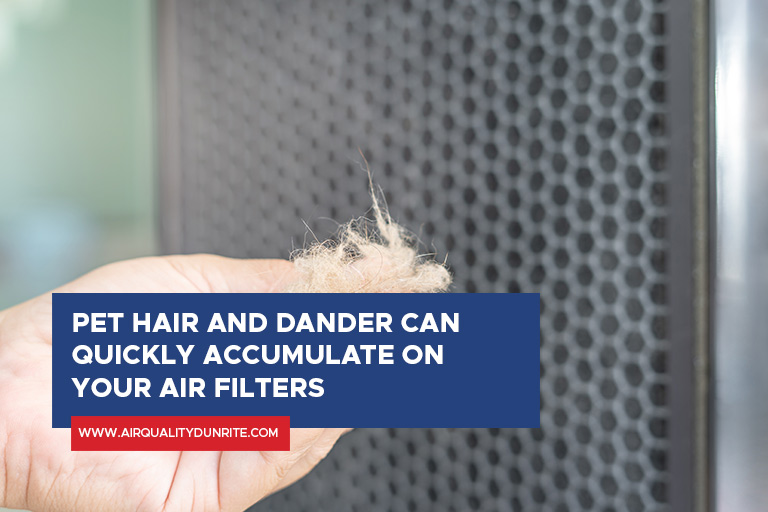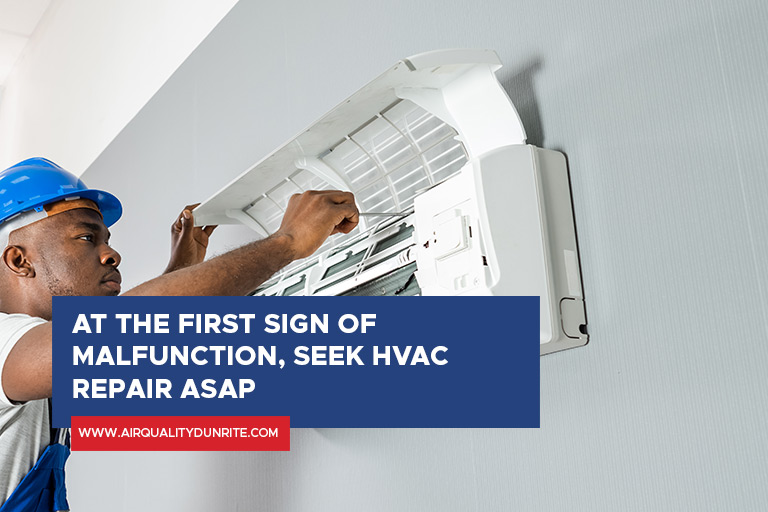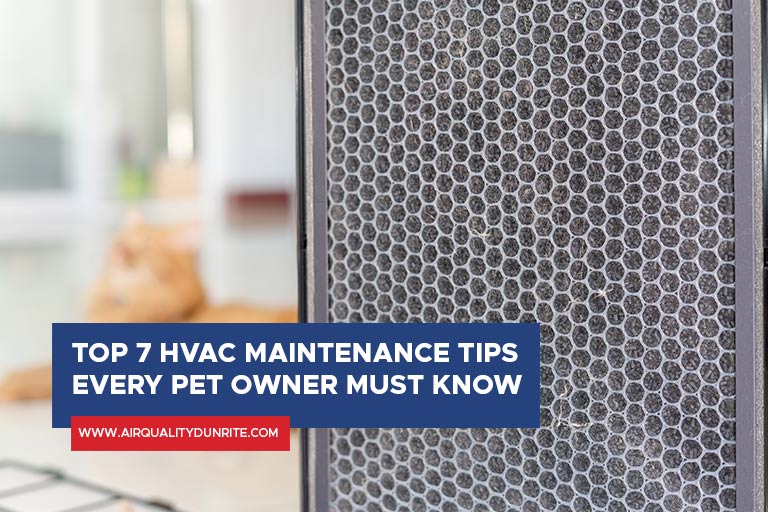Many consider their pets as part of the family. They give people unconditional love and bring happiness and laughter, making lives worthwhile and infinitely better.
However, living with your fur babies can also mean dealing with their sheddings. Pet owners often rely heavily on their vacuum cleaners and lint rollers to keep their homes clean at all times.
Unfortunately, in most cases, no amount of vacuuming can get rid of the fur and dander in the air.
To preserve the quality of indoor air, you need to keep up with our HVAC maintenance.
HVAC Tips for Pet Owners

1. Groom Your Pet Regularly
Regular pet grooming helps minimize the amount of shedding of fur and dander. Not only does it reduce the cleaning time but it also eliminates the need for frequent air filter replacement.
2. Check and Change Air Filters More Frequently
Pet dander can become airborne in your home and get caught in your HVAC filters.
Eventually, they will accumulate and reduce the performance of the air filter, affecting the airflow and causing indoor pollution. Also, a clogged air filter can cause a spike in your energy bills but with inefficient cooling results.
Be sure to invest in the best HVAC filter for pets and check and replace them regularly.
3. Clean Regularly to Minimize Pet Dander
In addition to bathing and brushing your pets, you should also clean your home frequently.
Be sure to dust, mop, and vacuum areas where your pet spends much of their time.
4. Keep Air Ducts Cleaned
Does pet hair get into air ducts? Absolutely!
The air ducts are the arteries of an HVAC system. They need to be clean to ensure the proper flow of healthy and fresh air all throughout your home.
Regular duct cleaning also helps ensure the proper distribution of cooled and heated air depending on how it is set.
5. Build a Barrier Around Your HVAC Unit
As lovable as they are, your pets can potentially damage your HVAC system. While other pet owners simply ignore the problem and pay for expensive repairs, we can take proactive measures to prevent it from happening.
Installing a small enclosure or barrier around the outdoor HVAC unit and compressors can prevent our pets from clawing at the components and chewing on the cables or urinating on its exterior surfaces.
Not only does it save energy and money but it also extends the life of the HVAC unit.
6. Get an Air Purifier
Investing in a high-quality air purifier can help ease the strain on your air filters. HEPA purifiers ensure as much as 99.97% removal of pet dander from the indoor air before ever reaching the air filters.
In addition to reducing the amount of pet hair and dander, HEPA purifiers also eliminate other types of airborne allergens that can trigger a runny nose and itchy eyes.
7. Invest in a Programmable Thermostat
Another good investment you can make to help maintain your HVAC system is a programmable thermostat. It helps you save money while keeping your pet comfortable when you’re away from home.
A programmable thermostat enables you to lower, increase, or turn off the temperature settings in your house remotely.
Preventative HVAC Maintenance: How Often Should It Be?
Unfortunately, many homeowners are guilty of not having their HVAC system serviced regularly.
While some say this preventative maintenance should be done once a year, professional HVAC technicians claim that the optimal time to service your HVAC unit is before you need the system the most.
For instance, in winter when you need sufficient heat to keep your home warm all throughout the freezing months, and in summer when you need to keep your home cool and comfortable.
The peak seasons for HVAC maintenance are in the middle of winter and summer. HVAC technicians will be busy during these times due to emergency calls. Make sure to arrange an HVAC maintenance service well ahead of time to avoid the inconvenience.
If you are using a heat pump system all throughout the year, be sure to have it inspected and maintained every 6 months.
Using our HVAC system all year long can cause natural wear and tear on the components. Routine or preventative maintenance enables technicians to detect and fix potential problems.
This rings true for gas-powered heating systems. A damaged heat exchanger can result in serious issues, such as exposing you and your family to dangerous levels of carbon monoxide gas and fire hazard.
When to Seek Furnace and Air Conditioner Repair in Toronto

When your HVAC system fails to provide you with maximum efficiency, it is high time to contact a technician to fix the problem.
Here are some of the most common signs of a failing HVAC system:
- Old Age – If your HVAC system exceeds 10 years, you need to replace them.
- Weird Noises and Smells – Get your HVAC checked when you notice any clanking, banging, or rattling sounds from your HVAC unit, as well as strange odour (like a dirty, old sock).
- High Utility Bills – If you notice that your monthly energy bill has been steadily increasing, this often indicates a problem with your HVAC system. While fluctuations in energy bills are common during season changes, it can also mean there is a potential leak in your home.
- Weak Airflow – This HVAC problem is often caused by a loose fan belt or stuck wheel. Be sure to contact a professional HVAC technician to fix it.
- Excess Moisture or Dust – The abnormally higher buildup of moisture or accumulation of dust in your home can indicate a problem in your HVAC system.
- Inefficient Distribution of Cool and Heated Air – This problem is often caused by a malfunctioning HVAC system due to loose or holes in ducts, fan and motor malfunctions, and uneven air transfers.
If you experience any of these problems, make sure to contact the professional HVAC technicians at Air Quality Dunrite for superior HVAC services.
Call us today at 416-342-1939 to book an appointment.



